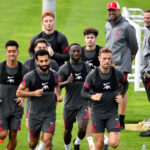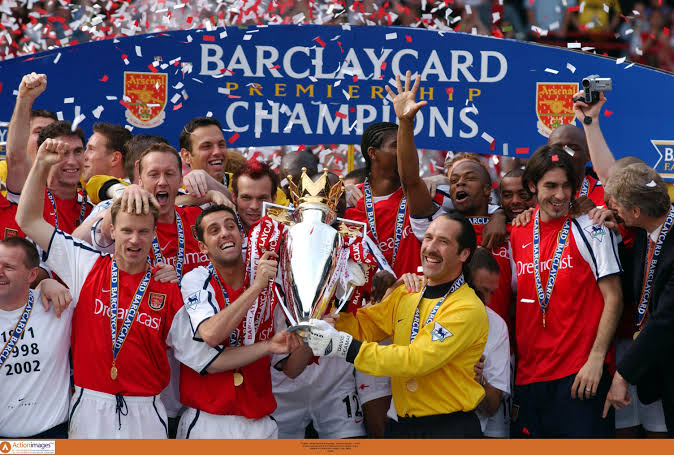I love him’ – Liverpool fans wowed by ‘class act’ after what he did for his country last night

The night was supposed to be one of pure celebration. A night of fireworks, screams, flags waving in the cold Scottish air, and songs echoing across Glasgow. A night that generations had been waiting for since 1998 — the night Scotland finally broke the curse and booked their place at the World Cup again. The stadium felt like it was shaking with joy, children sat on their fathers’ shoulders crying tears of history, and players collapsed to their knees, overwhelmed by what they had achieved.
But in the middle of that bright celebration, in the middle of all the laughter and the noise, there was one man who was smiling on the outside but fighting a storm on the inside. Andy Robertson — Liverpool legend, Scotland captain, and one of football’s most loved players — stood in the centre of the pitch with a medal around his neck, yet his heart was somewhere else. While fans screamed his name and teammates poured champagne over him, someone was missing from the moment. Diogo Jota. The friend he thought he would celebrate the World Cup dream with.
Scotland had just beaten Denmark 4–2 in the most dramatic fashion. It was the kind of match that people would tell their grandchildren about — tackles flying everywhere, goals that looked impossible, and a Scottish team that refused to collapse. They fought with everything they had. They fought for their fans. They fought for their flag. And Robertson fought for someone who wasn’t there to hug him at full-time. Someone who left the world too soon and left a hole in Liverpool, a hole in football, and a hole in Robertson’s heart.
When the whistle blew, the Scottish players sprinted across the field, a sea of blue celebrating like warriors returning from battle. But Robertson paused. He stared at the sky for a long moment. His chest rose with deep, shaky breaths. He looked like a man smiling, crying, and breaking at the same time. Nobody around him knew what he was thinking. But the world found out minutes later.
In his post-match interview with BBC Sport, with sweat still dripping from his face and emotion vibrating in his voice, Robertson finally let out the truth he had been holding in all night. “I’ve hid it well, but today I’ve been in bits,” he admitted. The fans expected him to talk about the goals, the qualification, the historic moment. But he didn’t. His mind, his heart, his spirit — they were not on the stadium. They were with Diogo Jota.
He continued, voice cracking with pain and pride. “I couldn’t get my mate Diogo Jota out of my head today. We spoke so much about going to the World Cup. I know he’ll be smiling over me today. I’m so glad it’s ended up this way.”l
That was the moment that ended the celebration and turned it into something deeper — something human. Because behind every world-class footballer, behind every victory and trophy and dream, there are real people with real emotions. And on this night, Andy Robertson was not trying to hide them anymore.
The clips of his interview hit social media like lightning. Liverpool supporters first watched it in silence. Then the reaction exploded — but not with banter or rivalry or debates. It exploded with love.
“Love Andy Robertson, he is a legend at Liverpool,” one fan posted immediately. Another added, “Andy Robertson is one of the classiest men in football and we’re so lucky he plays for Liverpool.”
Robertson was trending within minutes. Not because he scored, not because he was the captain of a World Cup-qualified team, but because he remembered his friend when the world expected him to bask in the glory alone. Even Scottish fans who didn’t support Liverpool wiped their eyes. Rivals admired him. Journalists called him “a class act” and “one of Liverpool’s greatest ever signings.”
More fans continued pouring messages of admiration: His influence might have dropped a little on the pitch recently but neither club nor country could hope for a better ambassador than Andy Robertson.”
“I think we underestimate how much our players are suffering because of Jota’s death.” “Please stay with Liverpool till the end, Robbo.”
And that was the heart of the whole emotional earthquake. Liverpool still hasn’t healed — the club, the players, the fans — they have been fighting through their pain while trying to perform in the hardest league in the world. Every photo of Jota at Melwood still hurts. Every song that used to include his name sounds different now. Every player who sat next to him in the dressing room remembers the jokes, the smiles, the kindness.
Robertson didn’t just remind the world about Jota — he reminded everyone that footballers are human, that they grieve, that they cry in private, and that sometimes the game does not stop even when the heart is broken. Some fans online pointed this out clearly: “People will tell you Liverpool fans are making excuses for their poor performances. These boys lost a close friend. The old boys are definitely feeling it.”
It was true. And on the night when Robertson should’ve been lost in the World Cup celebrations, he chose love instead. He chose loyalty. He chose brotherhood. He chose Jota.
It wasn’t just a tribute — it was a message. A reminder that trophies fade, matches end, and crowds go home, but relationships, memories, and friendships survive beyond the pitch, beyond the stadium, even beyond life and death.
And that is why Liverpool fans were emotional. Because they realised something bigger: in years to come, no matter how many trophies Robertson lifts or how many times Scotland qualify or how many critics try to bring him down, he will always be remembered not only as a world-class left-back but as a world-class human being. A man who celebrates loudly but loves quietly. A man who plays with passion but feels with honesty. A man who, even on the biggest night of his career, remembered the friend who should have stood beside him. That is why they say: Liverpool doesn’t just sign players — Liverpool signs people.
And if one day Andy Robertson leaves Anfield, the stadium will cry. But if he stays until retirement, the fans will carry his name like a flag forever. Because legends are not only made from trophies. Sometimes, legends are made from love.
And that night — the night Scotland qualified for the 2026 World Cup — the world didn’t only see a captain, a champion, or a great player.















